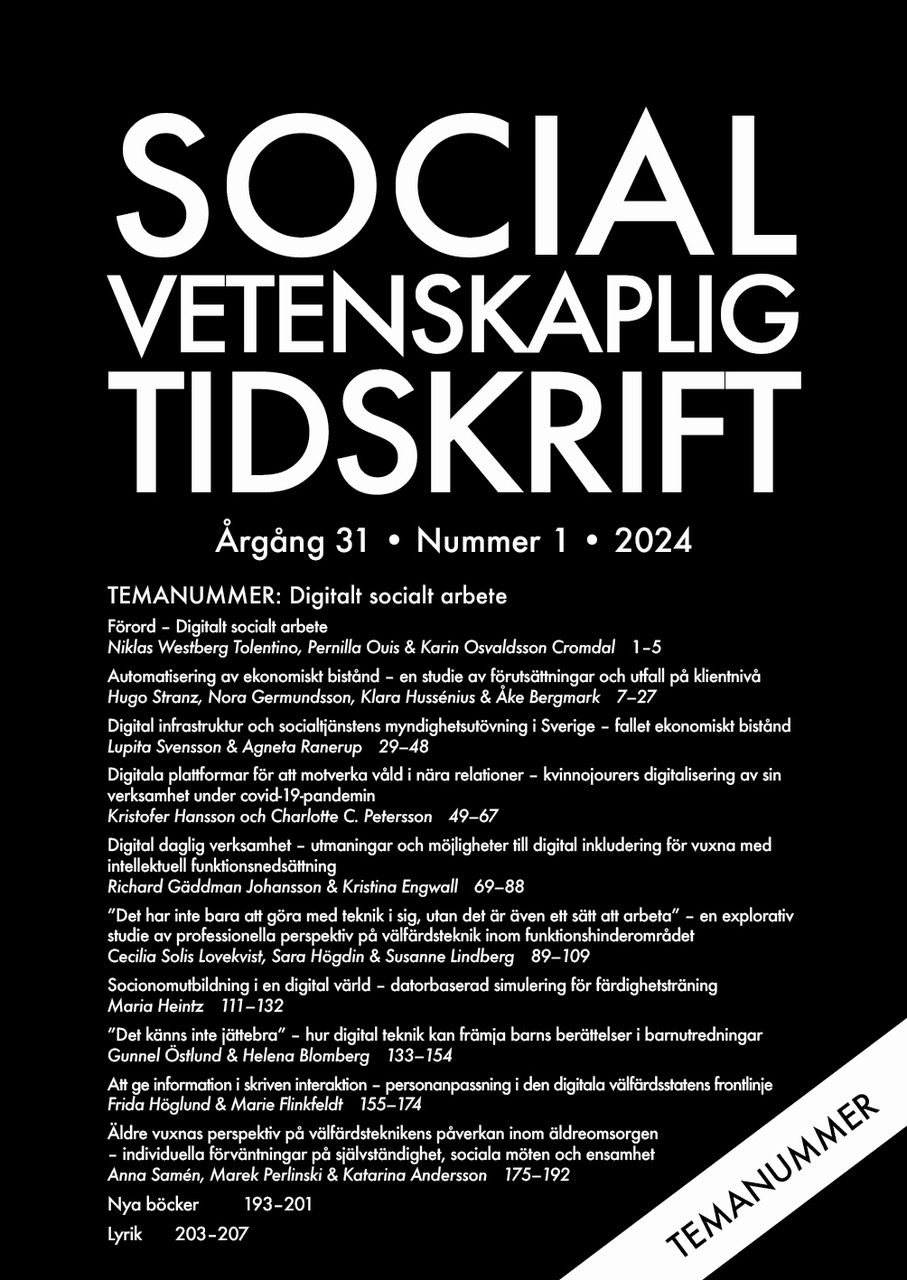Socionomutbildning i en digital värld
– datorbaserad simulering för färdighetsträning
DOI:
https://doi.org/10.3384/SVT.2024.31.1.4879Keywords:
social work education, computer-based simulations, vocational training, student perceptionAbstract
Social work education in a digital world - Computer-based simulations in vocational training
Digital technology is on the rise in social work education. Distance learning during the COVID-19 pandemic has accelerated the digitisation process, and students are now encountering digital technology in many ways. At the same time, the social work profession is skill based, conducting exercises with role play, and case studies and clinical placement have long been regarded as the ways in which students can prepare for their professional role. In today’s digitalised society, teaching methods where computer-based simulations are used for skills training are gaining ground. This article aims to gain an overview of these teaching methods based on the following questions: a) What different types of computer-based simulations are used for the skills training of social work students? b) What skills do the computer-based simulations intend to teach? and c) How do social work students perceive skills training with computer-based simulations?
A scoping review was completed with searches in several databases (APA PsycInfo, Eric, Scopus, Sociological Abstracts and SwePub) comprising international publications focusing on social work, higher education and computer-based simulations. Based on the inclusion criteria, 13 articles were included. The results show that there are several different types of computer-based simulations where virtual clients and virtual worlds are the most used. The vocational training that appeared to be most common was to practice conversational methods and make assessments together with reflection and self-awareness. The students were predominantly positive towards vocational training with computer-based simulations due to increased engagement and the opportunity for repetition in a safe and authentic environment. One challenge, however, is to sufficiently train students and teachers in the software used to ensure the teaching method is useful. Thus, there are lessons to be learnt from international studies of computer-based simulations as it is becoming increasingly common in social work education in Sweden.
Downloads
Published
How to Cite
Issue
Section
License
Copyright (c) 2024 maria Heintz

This work is licensed under a Creative Commons Attribution 4.0 International License.
Allt material i Socialvetenskaplig tidskrift publiceras sedan 2022 (Vol 28 Nr 2) med omedelbar öppen tillgång (open access), under Creative Commons-licensen CC BY 4.0. Upphovsrätten till innehållet tillhör respektive författare.
Allt innehåll i tidskriften är fritt tillgängligt utan kostnad och får fritt läsas, laddas ned, kopieras, delas, skrivas ut och länkas. När innehållet används måste författare, källa och licens anges. Författaren kan fritt göra sin publicerade text tillgänglig på institutionella och internetbaserade arkiv, exempelvis sitt lärosätes digitala arkiv eller andra tjänster för detta.
Inga publiceringsavgifter tas ut vid publicering i Socialvetenskaplig tidskrift.


